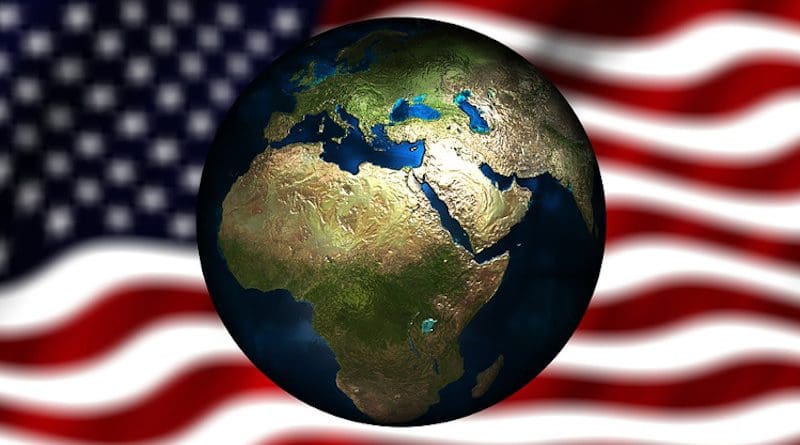How US Can Bolster Its Middle Eastern Economic Ties – OpEd
By Arab News
By Luke Coffey*
Most of the focus of US policymakers in the Middle East in recent years has been on security issues. Transnational terrorism from groups like Al-Qaeda and Daesh and rogue state actors like Iran has dominated America’s approach to the region. While security issues remain important, the economic aspects of America’s engagement in the region cannot be ignored — especially considering the negative impact the coronavirus disease (COVID-19) has had.
In the wake of the rapid spread of COVID-19, most countries implemented travel restrictions and the closure of nonessential businesses. The regional economic impact of the COVID-19 pandemic has been devastating. In addition to the widespread loss of production and wages due to public lockdowns, the Middle East’s oil and gas exporters have been severely affected by the sharp decline in world energy prices due to the pandemic-related economic recession. The pandemic also decimated the tourism industry that plays such an important role in many regional economies.
It is in America’s interest to ensure that the region is stable, secure and prosperous. Due to the impact of the pandemic, advancing economic freedom and building US economic ties to the Middle East are more urgent than ever for the region. There are five things the US can do to bolster economic relations with the Middle East.
Firstly, it should pursue a pragmatic, region-wide trade agenda that will remove barriers to the flows of goods and services. The US has already established a network of trade pacts in the region through bilateral free trade agreements with Israel, Bahrain, Oman and Jordan. In addition to making strategic efforts to better utilize these existing deals, Washington should consider pursuing additional trade agreements that can not only lower the costs of imported goods for consumers in the region, but also expand exports to the US market.
Secondly, the US should remove unnecessary tariffs. The steel and aluminum tariffs put in place by the Trump administration have so far been kept in place by President Joe Biden. This is not good news. Over the years, countries like Bahrain and Oman have done much to diversify their economies and the steel and aluminum sectors have played a key role. Not only are these tariffs bad for the American consumer, they also needlessly complicate America’s bilateral relationships in the Middle East.
Thirdly, Washington needs to ensure that any future Middle East Strategic Alliance (MESA) includes an economic component. In 2017, the Trump administration proposed the creation of a MESA with its Arab partners in order to deepen relations, but little progress has been made. It is not clear if the Biden administration will push this initiative. But, if it does, then there must be an economic component. A good MESA will include security, economics and energy issues.
Fourthly, Biden should build on Trump’s successes in the process of normalization of relations between Arab states and Israel.
Finally, the US must work with its partners in the region to bolster the private sector’s contributions to economic recovery. Private sectors will be critical to the post-pandemic recovery. The White House should host a high-level forum convening senior government and private sector representatives from the US and the Middle East. In addition to bolstering private companies, a forum is a public way for Washington to demonstrate its commitment to the region, while reminding regional governments of the desirability of collaboration with the US.
The Middle East will remain a key focus for US policymakers for the foreseeable future. The impact of COVID-19 on the world has been far-reaching and hugely damaging to every major economy. The pandemic has been the most widespread and hard-hitting health crisis in more than a century; it must not, however, weaken or undermine US interests in the region.
Both sides need to work closely together to foster an economic recovery. This recovery must be based on the principles of economic freedom and free trade, combined with a determination and commitment to strengthen regional security and stand up to those actors — including Iran and China — that threaten stability.
America’s adversaries have sought to use the COVID-19 pandemic to divide it from its partners, sow division and disinformation, and exert greater influence. They must not be successful in doing so.
This is a key moment for the US, Israel and the Arab world to stand strong and steadfast, and to look forward to a new era of cooperation for advancing shared interests.
- Luke Coffey is the director of the Douglas and Sarah Allison Center for Foreign Policy at the Heritage Foundation. Twitter: @LukeDCoffey

